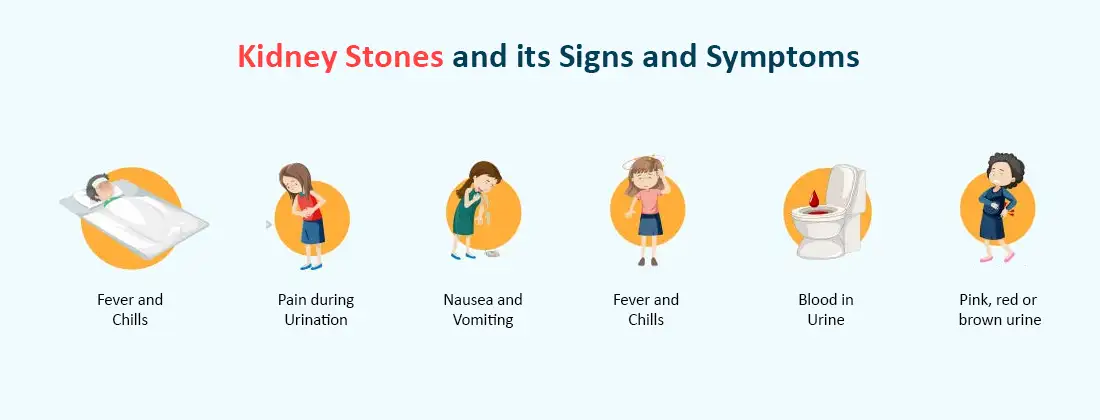
The kidney stone is one of the most common diseases among Indians with a lifetime incidence of 12%. Ultrasonography is widely used for detecting kidney stones , it is a safe, noninvasive and modality of choice among doctors.
The kidney stone is one of the most common diseases among Indians with a lifetime incidence of 12%. Ultrasonography is widely used for detecting kidney stones, it is a safe, non-invasive and modality of choice among doctors.
While kidney stones are small in size it can cause immense discomfort and if left untreated, lead to severe complications. These crystalline formations within the kidneys affect millions of people worldwide, and understanding nature is crucial for timely detection and effective treatment.
Sones in the ureter - a tube-like structure that leads from the kidney to the bladder, can cause severe pain and a common reason for emergency department visits.
At Ganesh Diagnostic and Imaging Centre, we utilise advanced diagnostic tools to detect kidney stones promptly. Among these tools, ultrasound stands out as the safest radiation-free imaging technique that provides real-time insights into the internal organs and allows one to see the clear images of stone size, shape, location, and numbers.
When the stones in the kidney are ignored, they will damage the walls of the kidney and in the long run, cause cancer.
What Are Kidney Stones?
Kidney stones also known as Urolithiasis, a soli deposits formed in the kidneys, can vary in size, composition and numbers. They are often composed of calcium, oxalate or other substances, leading to intense pain, discomfort and potential complications.
Kidney Stones and Its Signs and Symptoms
Recognising the sign of kidney stones is essential. The kidneys are bean-shaped organs that are present in pairs in the lower abdomen. It filters the waste chemicals out of blood and makes urine. A kidney stone is formed due to the deposition of tiny crystals of minerals in urine which stick together and form the stones.

Symptoms of kidney stones are:-
- Sharp, shooting pain on the back side, below your belly button, or groin that may come and go.
- Nausea and Vomiting
- Blood in urine
- Pain during urination
- Feeling like you need to urinate but cannot
- Patients may feel sand or small particles passing through when you urinate.
Other signs and symptoms may include:-
- Pink, red or brown urine
- Foul or cloudy-smelling urine
- Fever and chills
The Role of Diagnostics Testings in Kidney Stones
At Ganesh Diagnostic and Imaging Centre, we utilise advanced diagnostic tools to detect kidney stones. Sonography, CT scan, and MRI are used to diagnose renal stones. Among these tools ultrasound stands out as a non-invasive technique.
Advantages of Sonography in Kidney Stone Diagnosis
Sonography serves several advantages in the detection of renal calculi or renal stones:

Non Invasive
Sonography doesn't include any radiation which makes it safer, especially for pregnant women or individuals sensitive to radiation.
Real-Time Imaging
Immediate visualisation of kidney stones helps in quick decision making of healthcare professionals.
Cost Effective
Sonography is a more affordable option compared to other imaging techniques like CT and MRI.
Challenges and Considerations
While ultrasound is highly beneficial, certain limitations might affect its accuracy in detecting smaller stones or stones with certain compositions. In such cases, complementary diagnostic methods may be necessary for a comprehensive evaluation.
Treatment and management
Early detection allows for timely treatment. Depending on the size and composition of the stones, treatment options may include lifestyle changes, medications, or in more severe cases, minimally invasive procedures like lithotripsy or surgical removal.
For pain relief, doctors may recommend narcotic medications to ease the pain.
Other than this there are certain drugs like allopurinol, thiazide diuretics and many other drugs which are used to prevent the formation of stones.
If there is presence of infections antibiotics may be required.
A physician may remove the stone via lithotripsy, surgery or ureteroscopy,
Tips to Fight Kidney Stones at Home
If you are diagnosed with kidney stones there are high chances that you will get stone again in 5 to 10 years. But there are certain measures that can help to reduce the risk of developing kidney stones:
- Stay hydrated, drink plenty of water
- Take more fruits and vegetables with citric acid like which reduces the risk of formation of kidney stones and prevents them from increasing in size.
- Reduce intake of oxalate
- Avoid fizzy drinks
- Avoid excess intake of salt
- Decrease consumption of animal protein
- Foods that benefits you in renal stones are:-
- Raspberry
- Green tea
- Pomegranate
- Coconut
- Parsley
- Bay leaf
- However do not use or treat yourself at home with consulting a physician or doctor.
Conclusion
Although kidney stones are small in size, it can cause an excess amount of pain which is hard to handle. Understanding kidney stones, their symptoms, and the role of diagnostics like ultrasound is vital. At Ganesh Diagnostics, we offer a wide range of diagnostic tests. Our commitment is to provide accurate and timely diagnoses to ensure effective management and improved patient outcomes.
If you're experiencing symptoms or have concerns about kidney stones, don't hesitate to contact us. Our team of experienced professionals is here to assist you every step of the way.
Frequently Asked Questions
Can Sonography Detect Kidney Stones?
Similar to a CT scan, an ultrasound scan can identify kidney stones. Nevertheless, certain smaller kidney or ureter stones may go undetected by a sonography. One advantage of ultrasounds is that they don't expose patients to radiation, which makes them safe for young women, expectant mothers, and children.
Which Scan is Best for Kidney Stone Detection?
CT scans, or computed tomography.
What Are the Complications of Kidney Stones?
A large stone could become stuck in the urinary tract and may cause obstruction in urine flow and may cause severe pain from this. Permanent kidney damage can result from kidney stones. Additionally, kidney and urinary infections are made more likely by stones, which increases the possibility of bacteria entering the bloodstream.
What Are the 5 Major Complications of Urolithiasis or Kidney Stones?
- Renal abscess
- Infected stones
- Urosepsis
- Chronic Kidney disease (CKD)
- Urethral scarring
- Stenosis
What Are the 3 Early Warning Signs of Kidney Stones?
Signs and symptoms associated with kidney stones are :
- Dizziness and fatigue
- Swelling and edema
- Pain during urination
- Changes in urination pattern and color.
What are the major risk factors that can cause kidney stones?
- Personal or family history of the illness
- Being overweight
- Inadequate hydration
- Diets high in sugar, salt, or protein
- Surgical gastric bypass
- Bowel inflammations
- Certain particular drugs















